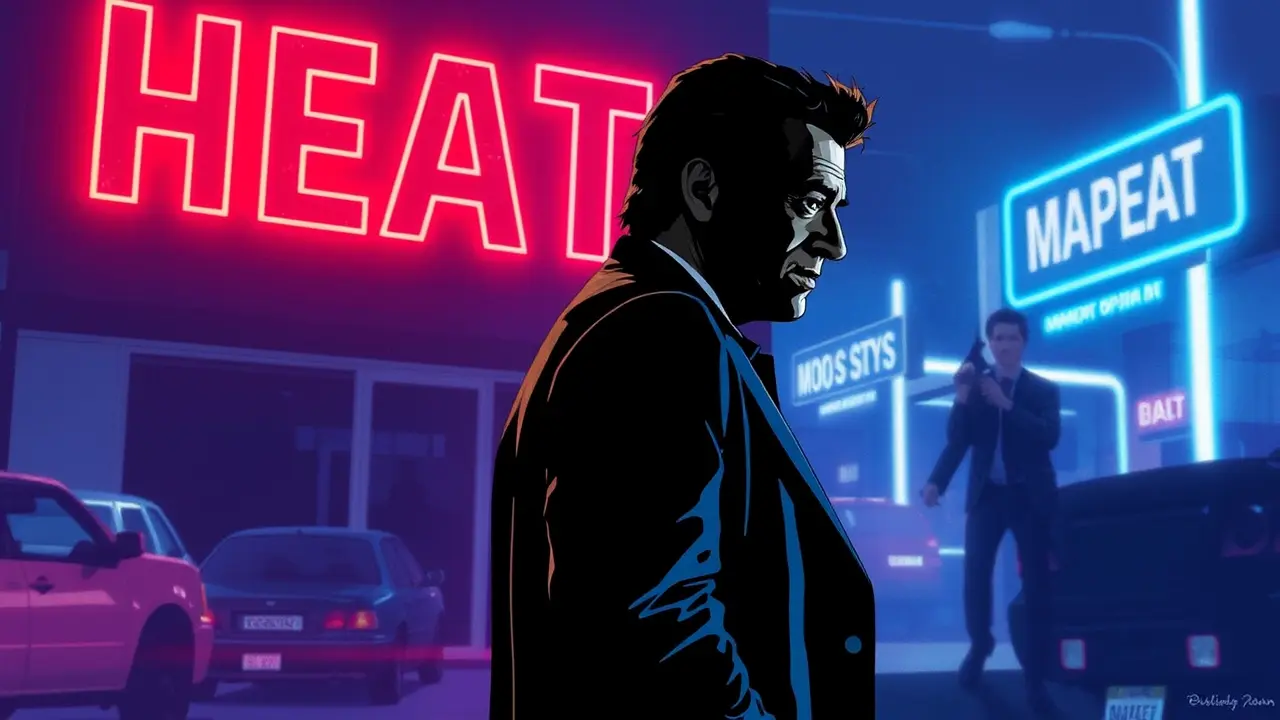Michael Mann honored with Lumière Award and discusses Heat sequel.
The hallowed halls of the Lumière Festival, a sanctuary for cinephiles where the ghosts of cinema’s pioneers seem to linger in the very dust motes dancing in the projector’s beam, bestowed its highest honor upon a modern master of the form, Michael Mann, in a ceremony that was as emotionally resonant as the closing frames of his own ‘The Insider’. This wasn't merely an award; it was a coronation, a recognition of a half-century obsession with the architecture of professional obsession, the chiaroscuro of morality, and the deafening silence that follows a well-planned heist gone awry.Mann, the American auteur whose name is synonymous with a certain brand of sleek, existential tension, accepted the prestigious Lumière Award not with grandstanding, but with the quiet, focused intensity of one of his own protagonists, praising the festival's unwavering spirit—a spirit that mirrors his own relentless pursuit of authenticity. And then, in a moment that sent a palpable ripple through the industry, he offered a long-awaited revelation, confirming that the long-rumored, feverishly-discussed sequel to his 1995 magnum opus, ‘Heat’, is not just a pipe dream but a tangible reality, with production potentially igniting as soon as next summer.This announcement is more than a piece of industry gossip; it is a seismic event in the cultural landscape, forcing us to re-examine the original film's legacy not as a closed loop but as a narrative with a second act waiting in the wings. ‘Heat’ was never just a cops-and-robbers thriller; it was a sprawling Los Angeles symphony, a brutalist ballet where the lines between hunter and hunted—embodied by the sublime duality of Al Pacino’s feverish Vincent Hanna and Robert De Niro’s monastic Neil McCauley—were not so much blurred as they were revealed to be irrelevant in the face of shared, driving compulsions.The coffee shop scene remains one of the most parsed and revered moments in modern cinema, not for its action, but for its profound stillness, a quiet conversation between two men who recognize in each other a reflection of their own damned souls. To craft a sequel is to dare to step back into that universe, to ask what happens after the final, fatal handclasp on the tarmac, after the last echo of Moby's ‘God Moving Over the Face of the Waters’ fades.The narrative seeds were always there, buried in the 1996 novel ‘Heat 2’, co-authored by Mann and Meg Gardiner, which operates as both prequel and sequel, tracing the origins of Chris Shiherlis (Val Kilmer’s character) and Hanna while catapulting forward to pick up the threads in the aftermath of McCauley’s death. How does Hanna, a man defined by the chase, continue when his ultimate quarry has been eliminated? Does he find a new McCauley, or does he become unmoored, his professional identity shattered? And what of Shiherlis, the lone survivor of the crew, now navigating a world without his mentor, potentially hunted by new adversaries and old ghosts? The cinematic landscape has shifted dramatically since 1995; the digital age has rendered the kind of analog, high-stakes bank heists McCauley orchestrated nearly obsolete, replaced by cyber-crime and more insidious forms of theft.A modern ‘Heat’ must grapple with this evolution, posing the question: can the code of the professional, a theme so central to Mann’s work, survive in a world without tangible honor? Furthermore, the project is shadowed by the poignant reality of time; the tragic absence of De Niro’s McCauley is a narrative hurdle that becomes a thematic cornerstone, while the potential return of Kilmer, following his own profound health battles, would add a layer of meta-textual poignancy that could deepen the film’s exploration of mortality and legacy. Mann, now in his eighties, is himself a different filmmaker, his recent work showing a more contemplative, perhaps even more melancholic edge.This isn't the project for the young director who made ‘Thief’; this is the work of an elder statesman reflecting on the costs of a life dedicated to the craft, both his and his characters'. The risk, of course, is monumental.A misstep could tarnish the pristine legacy of the original, reducing its mythic stature to just another franchise entry. But if anyone possesses the surgical precision and philosophical depth to pull it off, it is Mann. The Lumière Award celebrated a lifetime of impeccable craft; the ‘Heat’ sequel will be its ultimate test, a final, high-stakes mission that will determine whether the master can once again bend the modern world to his will, or if the world, and the ghosts within it, will finally prove too formidable even for him.
It’s quiet here...Start the conversation by leaving the first comment.
© 2025 Outpoll Service LTD. All rights reserved.
